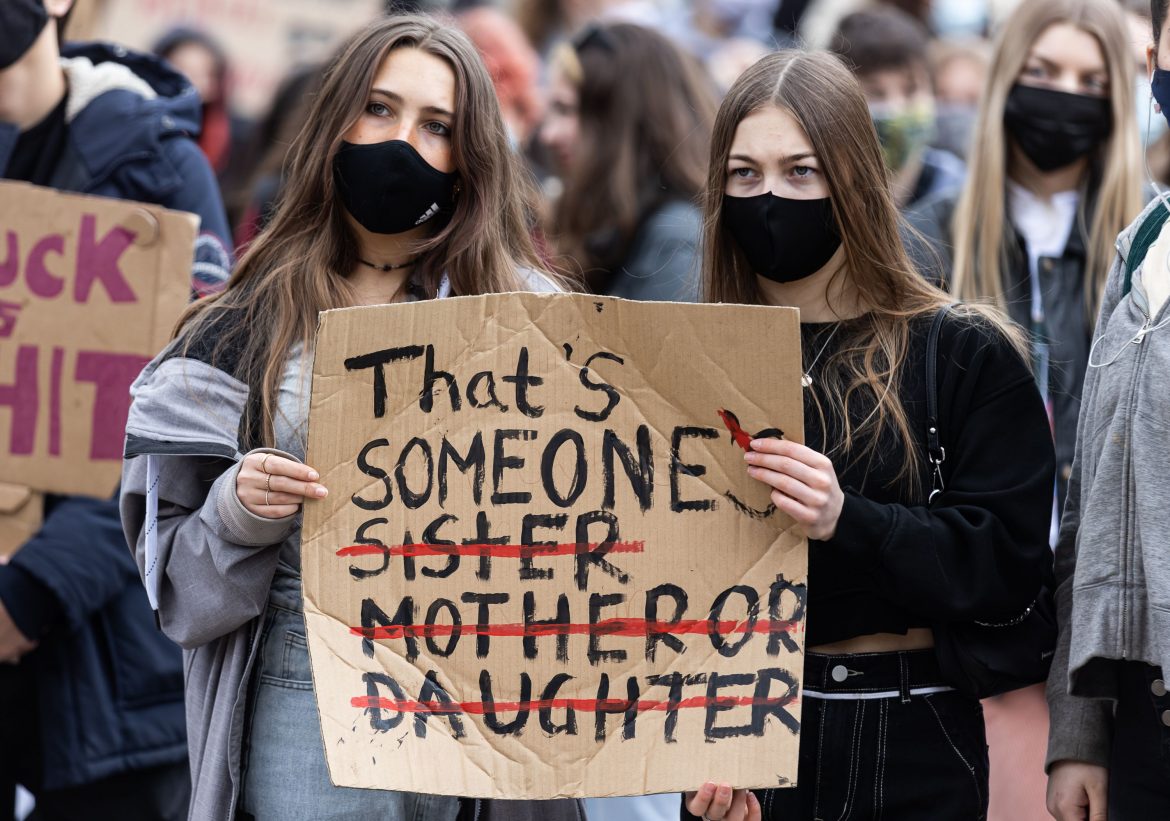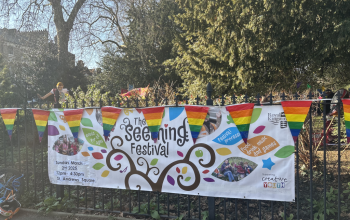Kidnapped. Raped. Killed. These are the words that ran through 23-year-old Marina Young’s mind as she walked home from work one cold evening, alone. Even as she quickened her pace, nothing could help her outrun the fear that she, too, could end up like Sarah Everard or Sabina Nessa.
The rape and murder of 33-year-old marketing executive Everard by Metropolitan police officer Wayne Couzens made Young feel a heightened sense of fear for her own safety.
“I remember when I first heard about what happened to Sarah. I was horrified. It made me start thinking about myself – what if it had been me? It could have. It can be, easily.
“Those thoughts are what made the fear really set in. I worry now when I’m out and about alone, always checking, looking behind me to see if someone’s following, never really feeling safe, especially in the dark.”
A culture of ‘text me when you get home’
For years now, there has been a culture among women of always saying, ‘text me when you get home’. This phrase is just an example of some of the behaviours women have adopted to try and feel safe.
This, along with sharing live locations, theorising possible escape routes and walking quickly down dark roads are all, according to Dr Hannah Bows, deputy director of the Centre for Research into Violence and Abuse, examples of “safety work” women adopt without realising.
“We don’t know how many times that [“safety work”] has been successful. It probably has reduced some instances or prevented them from escalating to more serious types of violence.
“But on the other hand, it doesn’t work all the time,” said Bows.
A report by Femicide Census, an organisation that documents the murders of women, found that one woman is killed by a man every three days in the UK.
“It’s extraordinary really”, Young said, “that some men feel such a sense of entitlement over the bodies of women. What right does a man have to force himself onto a woman, to kill her? It’s sad, no it’s not just sad, it’s unfair. Really unfair.”
Lack of confidence in the police
A 2021 YouGov survey carried out by UN Women UK found that 96 per cent of women and girls are doubtful about the police’s ability to handle incidents of sexual harassment. Around 45 per cent of women who would not report sexual harassment in the UK say that it is because nothing would really change.
These statistics highlight how deep-rooted the issue of women’s safety and confidence in the police is. Everard being murdered by off-duty police officer Couzens does very little to increase women’s faith in the police.
This is true for 27-year-old Rhea Shaney, who feels a sense of betrayal and lack of trust in the police. She said: “[The police] are supposed to enforce the law, to protect people, women, children, everyone. I definitely feel a false sense of security – something I didn’t really feel towards the police until what happened to Everard.”
Everard’s murder was just the start of the reignited conversation about women’s safety. Six months later came the case of Sabina Nessa, 28, a woman murdered as she walked alone one chilly September evening.
Nessa, a primary school teacher, walked through a well-used park to meet a friend on a Friday night. She never made it to her destination, and was found dead the following morning by a member of the public. Her body was discovered roughly stashed under a pile of leaves.
Women left to reconsider their own safety habits
The deaths of Nessa and Everard have prompted women in the UK to contemplate their own safety. Questions such as, ‘Am I doing enough to keep myself safe?’ ‘Is it wise to wear my earphones when I’m walking alone?’ ‘What if I don’t hear someone coming for me?’
These are the questions Shaney asked herself after hearing about Nessa. She was driving to work when she heard the news of the young woman’s awful fate on the radio.
During her day at work, Shaney couldn’t stop thinking about what she’d heard that morning. Nessa’s death had made her re-evaluate how seriously she took her own safety, and the safety of those women close to her.
“Before I leave my house or the office, I scan my surroundings and make sure everything’s okay. I decided I’d start letting someone, my husband or sister, know when I was leaving work in the evening or going out somewhere so they know where I am.”
According to Dr Bows, the messaging women are given on safety still largely focuses on their behaviours, instead of recognising that the responsibility shouldn’t be on women to improve their safety. Women are told not to go out alone at night or not to wear headphones, but the message is never about what men shouldn’t do.
Shaney wishes these behaviours didn’t have to be so deeply ingrained in women’s gender socialisation. “Women should be allowed to go about their day without having to worry about keeping themselves safe from men,” she said.
Society’s desensitisation to crime
Shaney also believes that society has become desensitised to the frequent crime that occurs nationwide. Social media has a role to play in this, due to the ‘what’s next?’ attitude that the world appears to have become slave to.
Shaney said: “Nowhere near enough is being done to protect women, and the rapid rate [with] which stories go from top priority to a buried relic doesn’t do anything to change society for the better, and its frightening.”
Over recent years, solutions have been put forward to improve women’s safety. However, headlines on television and in newspapers concerning the issue of women’s safety rarely stick around long or consistently enough for the public to reflect on and accept that things need to change.
It has taken the unjust murders of women, such as Everard and Nessa, to bring about conversation across the nation on the importance of women’s safety in society.
The arrival of winter sees the days get shorter and the nights falling quicker. More women will clutch keys between their knuckles, pretend to make fake phone calls and take busier routes as they walk home. The deaths of Everard and Nessa have forced women to reconsider their safety habits as society is reminded of the necessity for change.
*Names have been changed





